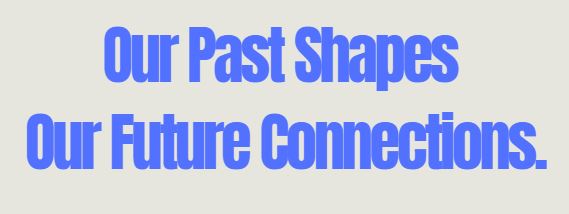Human beings are complex creatures, molded by a multitude of experiences that shape our perceptions, behaviors, and interactions with others. When it comes to relationships, our past experiences play a crucial role in defining how we approach and navigate the connections we form in the present. Whether they are positive or negative, these past encounters influence our expectations, fears, and patterns of behavior, ultimately impacting the dynamics of our current relationships. In this article, we will delve into the ways in which past experiences can shape our experiences in current relationships, highlighting the importance of self-awareness, healing, and growth in fostering healthier connections.
The Influence of Childhood
One of the most significant factors that shape our experiences in current relationships can be traced back to our childhood. Our earliest interactions and attachments with caregivers lay the foundation for how we understand love, trust, and emotional intimacy. If we grew up in a secure and nurturing environment, we are more likely to form secure attachments and have healthier relationship patterns in adulthood. However, individuals who experienced neglect, abuse, or inconsistent care may develop anxious or avoidant attachment styles that can impact their ability to trust and form secure connections.
Expectations and Beliefs
Past experiences often give rise to certain expectations and beliefs that we carry into our current relationships. For example, if someone has been hurt in the past, they may enter new relationships with a guarded heart, fearing the possibility of being hurt again. These negative beliefs can create a self-fulfilling prophecy, as they might unconsciously push potential partners away or sabotage the relationship due to their fear of vulnerability. It is essential to recognize and challenge these negative beliefs to cultivate healthier relationship dynamics.
Repeating Patterns
Without conscious awareness and reflection, we may find ourselves repeating patterns from past relationships in our current ones. This phenomenon, known as “repetition compulsion,” occurs when we unconsciously recreate familiar dynamics in an attempt to master or resolve past unresolved experiences. For instance, someone who grew up in a volatile household may find themselves drawn to partners who display similar traits or behaviors. Understanding these patterns and the underlying motivations behind them is crucial in breaking the cycle and establishing healthier relationship dynamics.
Triggers and Emotional Baggage
Past experiences can leave emotional scars that act as triggers in our current relationships. Triggers are situations, words, or actions that remind us of past traumatic or hurtful experiences, causing intense emotional reactions. These triggers can lead to misunderstandings, conflicts, or withdrawal within a relationship. It is important for individuals to identify their triggers and communicate them to their partners to foster understanding and create a safe space for healing and growth.
Communication and Conflict Resolution
Effective communication is essential in any relationship, but past experiences can significantly impact our communication styles and conflict resolution skills. For example, individuals who experienced invalidation or emotional suppression in their past may struggle to express their needs and emotions openly. Others who witnessed or experienced conflict in their upbringing may either avoid confrontation altogether or engage in aggressive behavior when faced with conflict. Recognizing these patterns and developing healthier communication and conflict resolution skills are key to building strong and resilient relationships.
Healing and Growth
While our past experiences undoubtedly shape our current relationships, it is essential to remember that we have the power to heal and grow beyond them. Engaging in self-reflection, therapy, or counseling can provide invaluable insights into our past wounds and help us develop healthier relationship patterns. Taking responsibility for our own healing and growth not only benefits ourselves but also positively impacts the quality of our relationships.
Building Self-Awareness
Developing self-awareness is a crucial step in understanding how our past experiences influence our current relationships. By becoming more aware of our emotional triggers, attachment styles, and patterns of behavior, we can consciously choose healthier responses and break free from harmful cycles. Journaling, mindfulness practices, and seeking feedback from trusted individuals can all aid in cultivating self-awareness and fostering personal growth.
Conclusion
Our past experiences have a profound impact on our current relationships. From our childhood attachments to the expectations and beliefs we carry, these experiences shape our perceptions, behaviors, and patterns of relating to others. However, by developing self-awareness, healing past wounds, and consciously choosing healthier relationship dynamics, we can overcome the limitations imposed by our past and create more fulfilling and meaningful connections in the present. Remember, it is never too late to embark on a journey of self-discovery and growth, ultimately enriching our lives and the relationships we form along the way.
If you like what you have read, check out other articles on the website ThinkingDeeplySelf-Critically.com The site is designed to give us tools and techniques to help us become the best version of ourselves. There are four main categories on the site. The Foundation, Our Responsibility to Us, Our Responsibility to Others and Facilitating Crisis. We can also be found on Pinterest.


